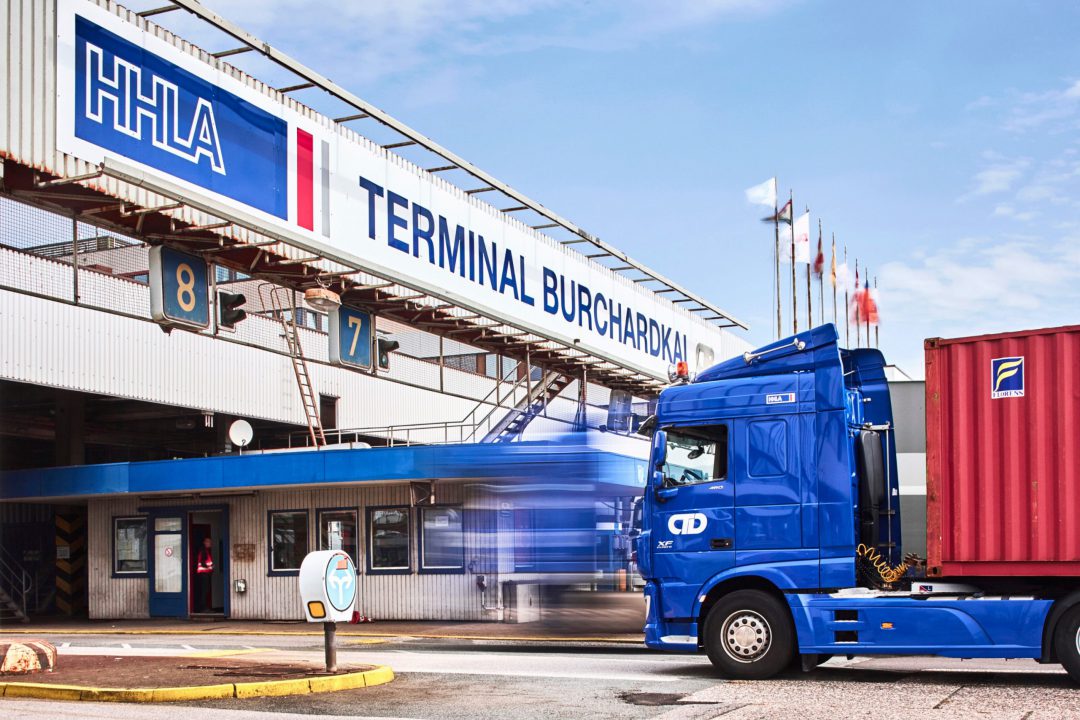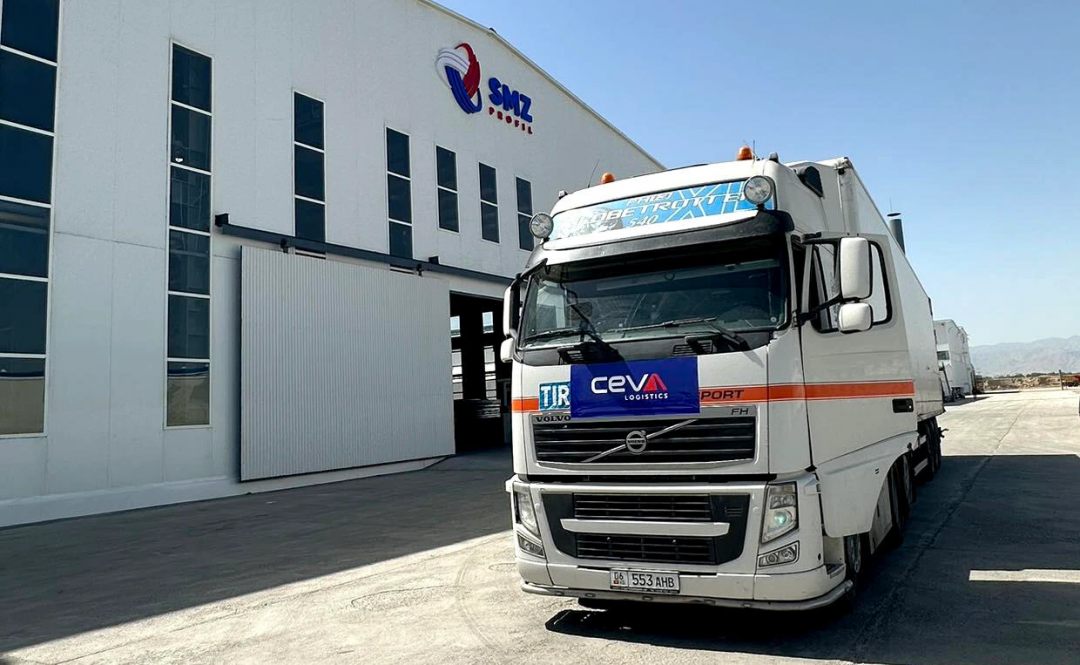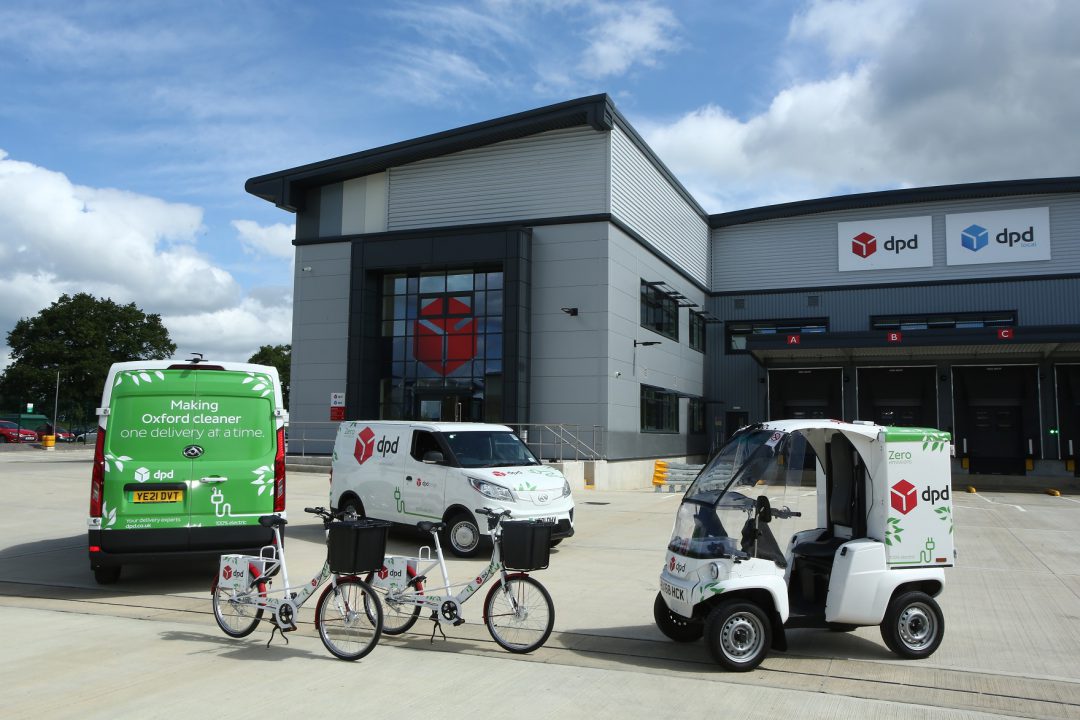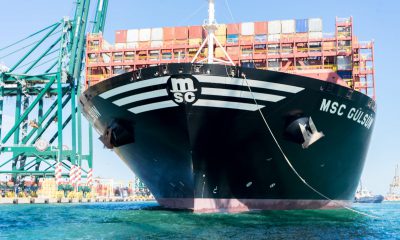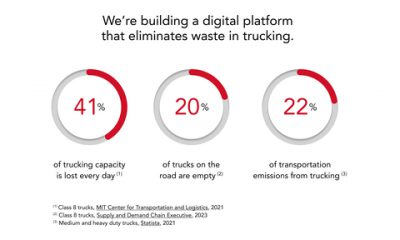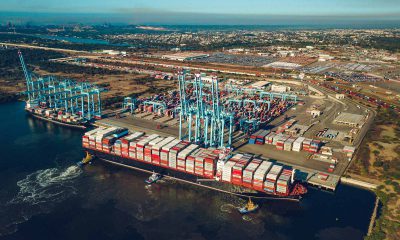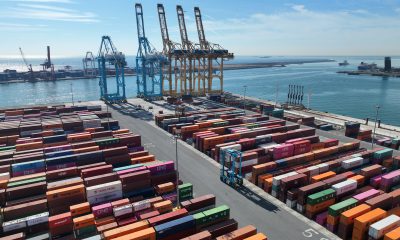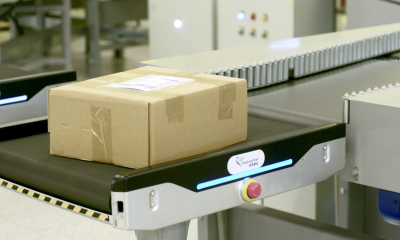CEVA Logistics recently launched a new international road transport route along the China-Kyrgyzstan-Uzbekistan corridor, opening new trade routes in China and central Asia. The opening of the new route is expected to boost trade growth among the three countries and deliver benefits across the region.
CEVA Logistics held a ribbon-cutting ceremony to celebrate the launch of the new route as the shipment convoy of six trucks departed from western China’s inland city of Kashgar, crossing into Kyrgyzstan. Loaded with industrial components, auto parts and consumer goods, the first TIR trucks on the new route successfully arrived in Uzbekistan’s second-largest city, Samarkand, after approximately 1,100 kilometers.
Joanna Zhu, Managing Director of Greater China, CEVA Logistics, said: “With the successful pilot, CEVA is expecting more regular TIR operations on this new route with around 100 trucks every month. CEVA will continue to optimize ground and rail product portfolios to open direct routes while strengthening intermodal capabilities. We will develop more trade lanes from China to the west and enhance trade resilience along the corridor.”
Southern Corridor facilitates regional trade
Central Asia is the main passage along the Han-Tang Silk Road. The China-Kyrgyzstan-Uzbekistan Ground Transportation Corridor is concrete example of China’s “Belt and Road” initiative. The opening of a southern passage has the capacity to change the entire transportation pattern of Western China. The southern corridor is expected to broaden the transportation range of the Eurasian Continental Bridge. As more logistics parks settle in Kashgar, export companies shipping goods such as auto parts, finished vehicles, and consumer and eCommerce goods will greatly benefit from the new route. As the China-Kyrgyzstan-Uzbekistan route becomes more established, CEVA anticipates making Kashgar a ground consolidation center for Western China.
In addition to the TIR solution, CEVA continues to explore and strengthen its multimodal solutions and open new direct routes as infrastructure in the region develops. Current plans call for the China-Kyrgyzstan-Uzbekistan Railway to be completed in 2025 and will make it the shortest freight route from China to the Middle East and Europe. The railway is expected to span more than 500 kilometers—more than 200 in China, 250 in Kyrgyzstan and the final 50 kilometers in Uzbekistan.
Yan Zhou, Chief Representative of East and Southeast Asia, IRU, said: “IRU and CEVA Logistics have established fruitful cooperation since TIR was implemented in China in 2018. From the historic first China-Europe round-trip TIR pilots to the recent new TIR route along the strategically important China-Kyrgyzstan-Uzbekistan corridor, IRU has been partnering with members to develop innovative trucking services under TIR. Together with our members and partners, IRU will continue to promote faster, safer and more efficient road connectivity between the East and the West.”
CEVA Logistics has been an IRU member since 2019, and CEVA’s global leader for cross-border and multimodal solutions, Kelvin Tang, was recently awarded the IRU New Industry Shapers award in acknowledgment of his accomplishments in pioneering TIR transportation in China and promoting Asia-Europe trade.

